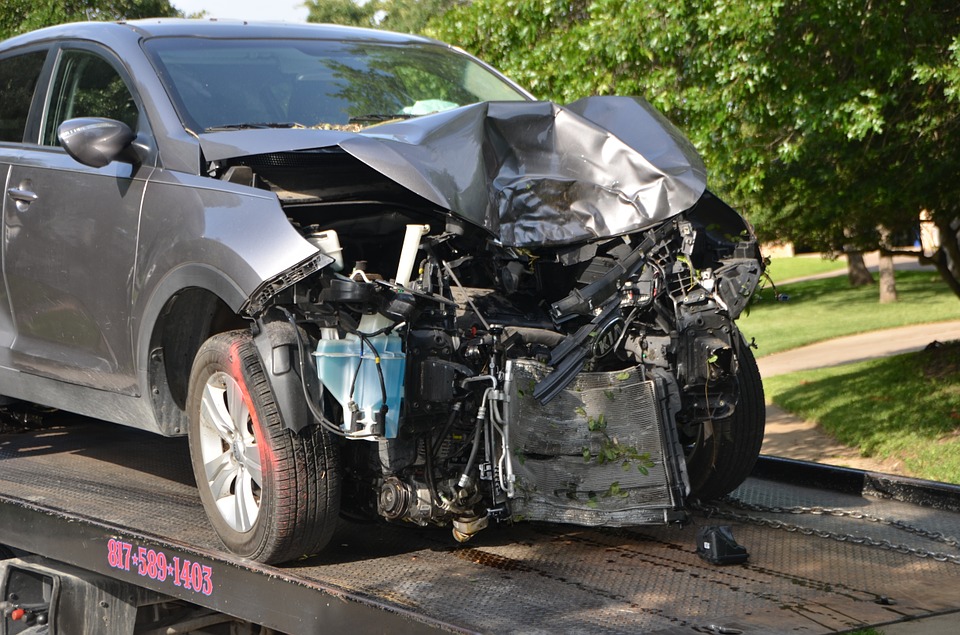Car insurance is a vital part of car ownership. There is no way you would put a car on the road today without having it insured. An Insurance cover is profitable in managing a car and cutting on the overall costs incurred in damages when you suffer an accident and you need the bills taken care of.
Having insurance is the best way of maintaining good road safety standards and peace of mind while driving. There’s much more to it than a sticker on your windscreen that helps you get through police checks. Before we get into the details, one thing is certain, different states will have different legal requirements when it comes to car insurance policies. But the most important thing, however, is to always ensure that you adhere to the laid down regulations concerning car insurance policies. Here is the exact role of car insurance companies in an accident case.
1. Cover Costs When the Insured Driver is at Fault
When driving, there are many uncertain things that could happen. But being involved in a car accident tops the list. There’s a lot that goes into handling a car accident once it happens. Whenever you’re involved in an accident and are found without car insurance, it could ruin both you and the people hurt in the accident financially. Now, this is something that you don’t want to appear in the police report. In addition to this, you’ll not have a clear conscience knowing that someone else is paying dearly for your mistakes. According to Jeff Preszler from PreszlerLaw-NS.com, the Insurance Act of Ontario requires all drivers to have valid, up-to-date car insurance regardless of their age or the type of vehicle that they drive. This brings in the need to have your insurance updated from time to time. Most insurance companies will go the extra mile to send reminders to insurance applicants reminding them when it’s time for insurance policy renewal.
In covering the costs of the at-fault driver, it’s important to have a liability motor insurance coverage. There are two types of liability coverage, namely; bodily injury liability coverage and liability coverage in property damages. Your insurer will protect you from the overall costs of covering these bills under the liability coverage.
2. Protecting the Driver Against Underinsured or Uninsured Drivers
In the event of a car accident that involves a driver who is not insured or underinsured, the insurance company of the driver who suffered damages pays him/her for the damages caused. This is a way in which your insurance protects you financially against covering the costs yourself. Pursuing the driver personally may not be the best option and you might not be in a condition stable enough for you to make that move. Even in your best shape, you’d still want to leave insurance matters to the insurance company or your attorney rather than take matters into your own hands.
Your insurance company will follow up on the matter to get reimbursement for the payments it made to you from the uninsured driver. This coverage is made active when the at-fault driver exceeds the policy limits set for negligence. Here’s what you need to know in regards to both underinsured and uninsured drivers:
- Uninsured drivers – If you are ever involved in a car crash with an uninsured driver, it’s the uninsured driver coverage you purchased for your car insurance policy that will be used to cover for any damages. This means that you’ll need to make a claim with your insurance company. The downside to this type of insurance is that it will not cover anything that exceeds its limit.
- Underinsured drivers – Motorists need underinsured driver coverage to protect them whenever they’ve been involved in car accidents involving underinsured motorists. Unlike the uninsured driver coverage, this insurance policy may exceed the limits of the damages caused by the at-fault driver.
3. Help When Filing Claims
 Filing a claim is the first thing you would do as an insured driver after being involved in an accident. In this case, your insurance company will optimally work on the case to get your claims checked. Of course, you’ll need an attorney to help you in filing your claim. But if you are not the at-fault driver, your insurance company will play a significant role in looking into the policy of the other party and assess the overall damage to both self and property. Insurance companies also offer a claim adjuster who acts as your contact throughout the process.
Filing a claim is the first thing you would do as an insured driver after being involved in an accident. In this case, your insurance company will optimally work on the case to get your claims checked. Of course, you’ll need an attorney to help you in filing your claim. But if you are not the at-fault driver, your insurance company will play a significant role in looking into the policy of the other party and assess the overall damage to both self and property. Insurance companies also offer a claim adjuster who acts as your contact throughout the process.
Claim adjusters examine the damages incurred, investigate the accident, check the policy, and how much in total costs it covers for property damages and medical treatment costs. And working with the authorities and your attorney collaboratively, they can determine fault. This is something that insurance companies will work on seamlessly.
4. Insurance Companies May Offer Quick Resolutions in Settling Accident Cases
It’s not quite a bad idea when you’ve been offered a great deal. And perhaps, this is where most people misunderstand insurance companies. Let’s face it, insurance claim processes are lengthy and they can be overwhelming. When you have grounds and you did all that you could to document the accident, an insurance company may provide you with a quick settlement offer to resolve the case. If you talk with your attorney and you both agree to take the offer, it may help to reduce the stress on your part. However, the offer may not be substantial to cover for the damages and still cover your medical costs. You have every right to ask for a higher offer and your attorney can help you in this area.
While it’s ok to rely on your insurance company to help you with the claim process, it’s imperative that you work closely with an experienced attorney. There are various legal issues that you’ll need your attorney to work on, issues that you may not be conversant with. The most important aspect after a car crash is knowing the right steps to take thereafter. These will make a significant impact on your case.







